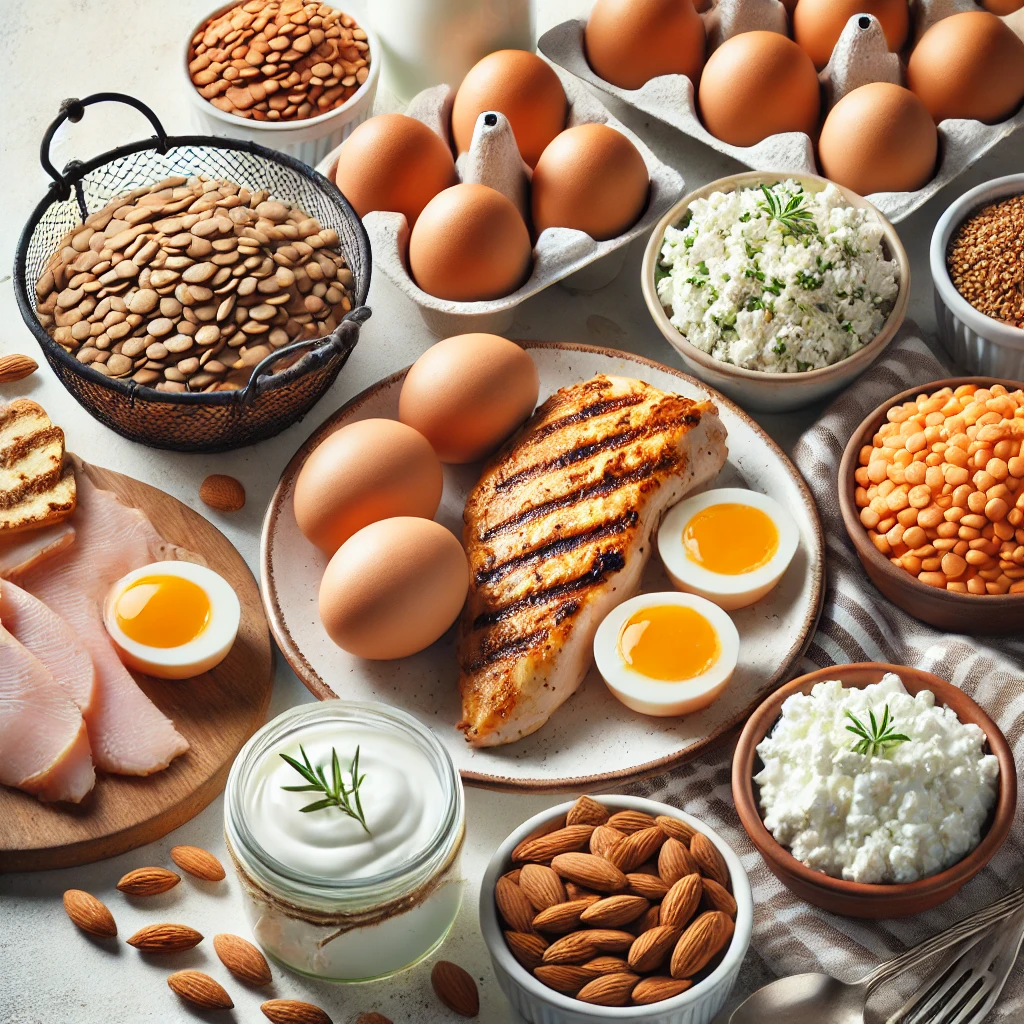
Protein is essential for muscle repair, immune function, and overall health. Including high-protein foods daily ensures you’re meeting your body’s needs. Here are six top choices:
1. Eggs
- Eggs are a versatile protein source, providing 6 grams per egg. They’re rich in amino acids, vitamins, and minerals, making them perfect for muscle repair and growth.
2. Greek Yogurt
- Greek yogurt has twice the protein of regular yogurt, typically about 10 grams per serving. It’s excellent for gut health and packed with calcium and probiotics.
3. Chicken Breast
- Chicken breast is a lean protein powerhouse, with about 31 grams per 100 grams. It’s low in fat, making it ideal for building lean muscle.
4. Lentils
- A plant-based protein source, lentils offer 18 grams of protein per cup. They’re high in fiber, supporting digestion and providing long-lasting energy.
5. Cottage Cheese
- Cottage cheese contains casein protein, perfect for muscle repair. One cup has around 28 grams of protein, making it an excellent choice for pre-sleep snacks.
6. Almonds
- Almonds provide around 6 grams of protein per ounce and are high in healthy fats and fiber. They’re a great option for a mid-day protein boost.
Here are some FAQs
-
What are some high-protein foods? Common high-protein foods include eggs, lean meats, fish, legumes, Greek yogurt, and nuts.
-
Why is protein important for the body? Protein is essential for muscle repair, immune function, and overall cell health.
-
How much protein should I eat daily? Protein needs vary, but on average, 0.8 grams per kilogram of body weight is recommended.
-
Can I get enough protein on a vegetarian diet? Yes, plant-based proteins like beans, lentils, tofu, and quinoa offer sufficient protein.
-
Is it safe to eat a high-protein diet? For most people, a balanced high-protein diet is safe, though those with kidney issues should consult a doctor.
-
What are some portable, high-protein snacks? Try nuts, Greek yogurt, hard-boiled eggs, or protein bars.
-
Do high-protein diets help with weight loss? Protein can support weight loss by promoting satiety and aiding in muscle retention.
-
Are protein powders necessary? They’re convenient but not essential if you meet your protein needs through food.
-
What’s the difference between animal and plant protein? Animal proteins contain all essential amino acids, while most plant proteins need to be combined to form a complete profile.
-
How can I increase protein in my meals? Add beans, eggs, nuts, seeds, or lean meats to boost protein in everyday meals.
